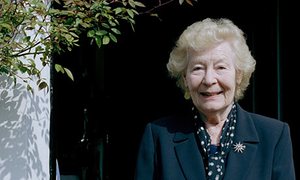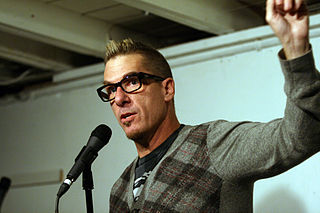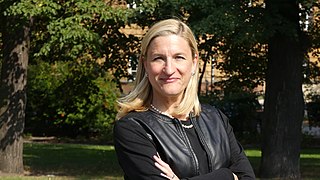A Quote by Nina Bawden
I grew up on a suburban street with lace curtains and dull neighbours, so I made up stories to tell my friend, in which they became serial killers and burglars. She told her mother, who then told mine.
Related Quotes
My mother’s been living alone for over ten years. She gets up at six every morning. She makes herself a coffee. She waters her plants. She listens to the news on the radio. She drinks her coffee. She has a quick wash. An hour later, at seven, her day is over. Two months ago a neighbour told her about your blog, and she asked me to buy her one of those thingummyjigs – by a thingummyjig she meant a computer. And since then, thanks to your trimmings, your ribbon bows, your tie-backs for curtains, she’s rediscovered the joys of life. So don’t tell me you don’t know any answers.
She didn’t understand why it was happening,” he said. “I had to tell her she would die. Her social worker said I had to tell her. I had to tell her she would die, so I told her she was going to heaven. She asked if I would be there, and I said that I would not, not yet. But eventually, she said, and I promised that yes, of course, very soon. And I told her that in the meantime we had great family up there that would take care of her. And she asked me when I would be there, and I told her soon. Twenty-two years ago.
I talked to my mother about it a lot. I asked her what it was like to grow up in New York and Harlem in the 1920s and 1930s, and I asked her about a woman leaving her husband. I asked her about how she would feel about that woman, and my mother grew up in the Church Of God In Christ, and she told me that the woman might be isolated because the other women thought she might go and come after their husbands. That's how they thought then.
She asked me what was wrong, and I told her I had to end it. She was surprised, and asked my why I thought so. I told her it wasn't a thought, more a feeling, like I couldn't breathe and knew I had to get some air. It was a survival instinct, I told her. She said it was time for dinner. Then she sat me down and told me not to worry. She said moments like this were like waking up in the middle of the night: You're scared, your'e disoriented, and you're completely convinced you're right. But then you stay awake a little longer and you realize things aren't as fearful as they seem.
The earliest influence on me was the movies of the thirties when I was growing up. Those were stories. If you look at them now, you see the development of character and the twists of plot; but essentially they told stories. My mother didn't go to the movies because of a religious promise she made early in her life, and I used to go to movies and come home and tell her the plots of those old Warner Brothers/James Cagney movies, the old romantic love stories. Through these movies that had real characters, I absorbed drama, sense of pacing, and plot.
I was bullied by my siblings and cousins, so make-believe was a way in which I could be in charge. When I was like 10 and my sister was about five, I convinced her that she was going to jail because she used a bad word. The doorbell happened to ring, and I told her it was the police. I made her pack her bags. She was crying, and then I said to her, "I forgive you, and I'm gonna tell the cop to go away." Then, of course, she loved me. It was terrible - she still remembers it. I had a sordid sense of humor.
One day when I was fourteen, I told Charlie that I hated Mother. “Don’t hate her, Jo,” he told me. “Feel sorry for her. She’s not near as smart as you. She wasn’t born with your compass, so she wanders around, bumping into all sorts of walls. That’s sad.” I understood what he meant, and it made me see Mother differently. But wasn’t there some sort of rule that said parents had to be smarter than their kids? It didn’t seem fair.
I did my first play in fifth grade. This same fifth grade teacher asked me several years later what I wanted to do when I grew up. I knew the most fun I'd had was doing the play in her class, so when I told her that, she began to take me to local theater auditions and became my mentor and friend, and to this day continues to be.
You had every right to be. He raised his eyes to look at her and she was suddenly and strangely reminded of being four years old at the beach, crying when the wind came up and blew away the castle she had made. Her mother had told her she could make another one if she liked, but it hadn't stopped her crying because what she had thought was permanent was not permanent after all, but only made out of sand that vanished at the touch of wind and water.






































